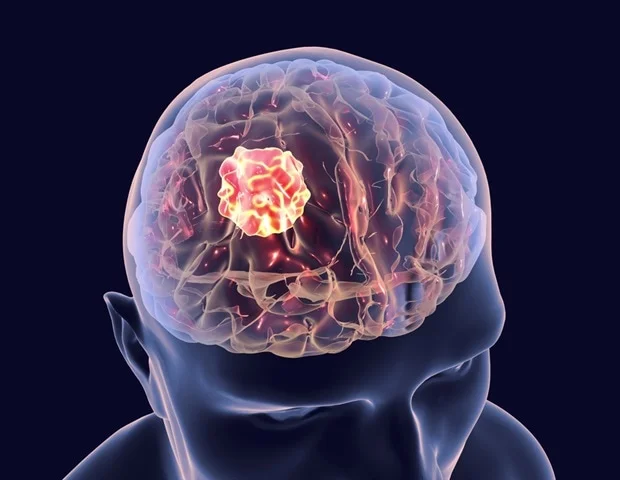Introduction to Brain Cancer Challenges
Brain cancer presents significant challenges, both for patients and the medical community. Its complexity lies in the brain’s critical role in controlling essential body functions, making treatment options delicate and often invasive. The aggressive nature of many brain tumors, such as glioblastomas, further complicates treatment, as they are difficult to remove entirely and resistant to traditional therapies like chemotherapy and radiation. These factors contribute to the ongoing need for advancements in treatment approaches.
Support for research and patient care plays a crucial role in addressing these challenges. Organizations dedicated to advancing treatments, raising awareness, and supporting patients provide invaluable resources for those affected. Donating to causes like the best glioblastoma charity can help fund innovative research and improve access to cutting-edge treatments. As emerging technologies and collaborations between researchers evolve, they offer hope for more effective therapies and a brighter future for those battling brain cancer.
Advances in Medical Imaging
Advancements in medical imaging technologies are revolutionizing the diagnosis and treatment of brain cancer. Techniques like MRI, which can deliver detailed three-dimensional images, and PET scans, which can highlight active cancerous areas through metabolic activity, provide unprecedented clarity and precision. These insights allow healthcare professionals to craft more informed treatment strategies, more accurately determining tumors’ size, location, and aggressiveness. Such imaging advancements spearhead surgical precision and are crucial in monitoring treatment efficacy and detecting recurrences early. The ongoing improvements in imaging technology continue to enhance diagnostic capabilities, ensuring treatments are strategically targeted and outcomes more favorable.
Personalized Medicine in Oncology
By emphasizing customized therapies that complement the genetic composition of individual malignancies, personalized medicine is revolutionizing the field of oncology. This specificity allows oncologists to identify mutations unique to a patient’s cancer cells, thereby enabling the selection of treatments that precisely target these anomalies. Such approach minimizes harmful side effects typically associated with traditional therapies like chemotherapy, which indiscriminately affect both healthy and cancerous cells. The rise of next-generation sequencing and other genomic profiling techniques has vastly expanded our understanding of tumor heterogeneity, making personalized medicine a cornerstone of modern cancer therapy. By honing in on the genetic peculiarities of tumors, customized medicine increases the odds of treatment success. It opens avenues for developing potent, new drugs tailored to unique genetic profiles.
Breakthroughs in Immunotherapy
A new treatment called immunotherapy uses the body’s immune system to combat cancer cells effectively. In recent years, significant strides have been made in developing various immunotherapeutic approaches, such as CAR T-cell therapy, checkpoint inhibitors, and cancer vaccines. These breakthroughs have ushered in a new era of hope, particularly for brain cancer patients, who often face limited treatment options. Immunotherapy offers a potent substitute for traditional techniques by boosting or regaining the immune system’s capacity to identify and eliminate cancer cells. Moreover, it generates less collateral damage to normal tissues, thus preserving patient quality of life during and post-treatment. As research in this domain evolves, the potential for immunotherapy to revolutionize cancer care becomes increasingly evident.
The Role of Artificial Intelligence
An increasingly important technology for improving brain cancer treatment approaches is artificial intelligence (AI). By processing vast datasets far more quickly and accurately than human capabilities alone, AI systems can assist in identifying patterns and predicting treatment responses, crafting personalized therapeutic plans. AI algorithms are being developed to improve image analysis and detect subtle changes in MRI or PET scans that may indicate tumor progression or response to therapy. Furthermore, AI contributes to drug discovery, enabling researchers to model and simulate potential therapeutic molecules’ interactions with cancer cells. These capabilities expedite finding effective treatments and eliminate many guesswork elements of traditional approaches, leading to faster and more efficient care delivery.
Non-Invasive Treatment Techniques
Non-invasive techniques are at the forefront of transforming how brain cancer is treated, offering more conservative options for patients. High-risk surgical operations are becoming less common because of innovations like targeted ultrasound therapy, which targets and kills tumor cells using sound waves, and innovative medication delivery systems, which try to cross the blood-brain barrier better. These techniques enable treatment with reduced side effects and shorter recovery times, significantly improving patients’ medical experience. As research continues, the potential for such therapies to be combined with other treatment modalities, like immunotherapy or personalized medicine, could further enhance their effectiveness and broaden their applicability, making them a vital part of the integrated approach to managing and potentially curing brain cancer.
The Importance of Early Detection
Emphasizing early detection is critical in effectively managing and successfully treating brain cancer. With new screening methods and diagnostic tools constantly being developed, identifying cancerous changes at an early stage has become more feasible. These technologies enable medical professionals to take action before cancer has a chance to spread or become more complicated. Early diagnosis frequently results in higher survival rates, more treatment options, and improved quality of life after therapy. Public awareness campaigns and education on the symptoms and risks associated with brain cancer are essential in encouraging proactive health measures, ensuring that people seek medical advice promptly when suspicious symptoms arise.
Global Research Collaborations
The advancement of brain cancer treatments is increasingly supported by international research collaborations, transcending borders to unify expertise and resources. These partnerships bring together top scientists, medical professionals, and organizations to promote a vibrant interchange of ideas and discoveries. They are pivotal in pushing forward complex research projects that might be beyond the reach of single entities. Through shared goals, global networks accelerate the pace of scientific discovery, refine current treatment methodologies, and drive forward groundbreaking research that promises to change brain cancer therapy dramatically. The reality of global collaboration highlights the critical importance of joint efforts in tackling complex health challenges, reinforcing that collective action can yield far-reaching impacts in cancer prevention, diagnosis, and cure.
